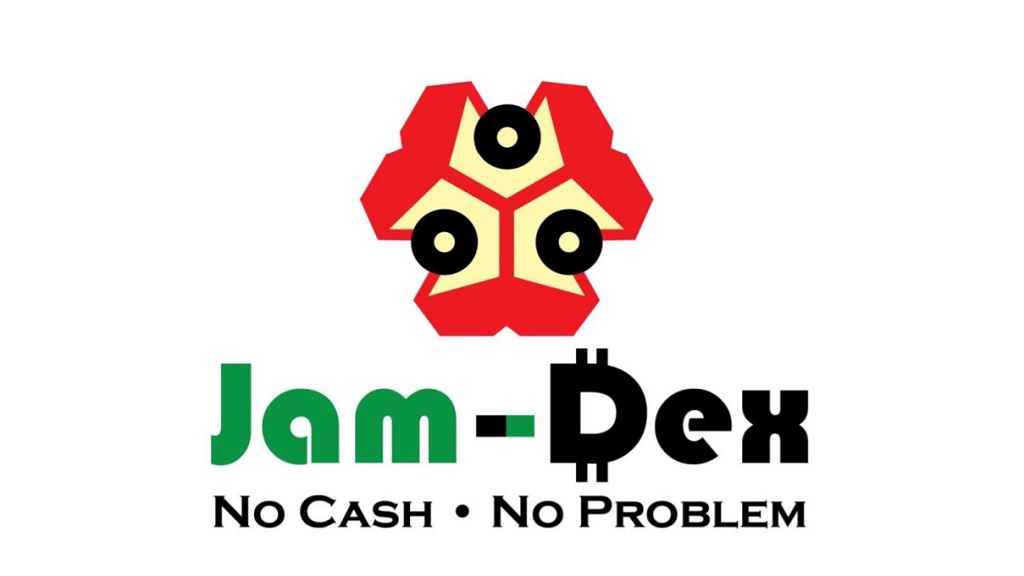
Transport operators say they are ready to embrace the Bank of Jamaica’s (BOJ) central bank digital currency Jam-Dex, and could do so in time for the new year if things fall in place quickly.
 Aldo Antonio, co-founder and acting executive chairman of the National Transporters Alliance Group (NTAG), said he has been lobbying amongst transport owners to embrace Jam-Dex as a means of improving the efficiency of their operation and to reduce costs and security risks.
Aldo Antonio, co-founder and acting executive chairman of the National Transporters Alliance Group (NTAG), said he has been lobbying amongst transport owners to embrace Jam-Dex as a means of improving the efficiency of their operation and to reduce costs and security risks.
“I see Jam-Dex as something that would be significantly transformative for the public transportation sector and needs to be embraced,” Antonio told the Jamaica Observer.
But he said he understands if at the moment, his fellow transportation owners are not gung-ho, especially with the low levels of participation of both vendors and consumers using Jam-Dex.
“One of the things that we have recognised at NTAG is that you have to have sufficient numbers of people using Jam-Dex to make it feasible. So, no matter how many merchants there are, if there aren’t sufficient customers using it, then the merchants will become discouraged overtime and abandon it. It is a system which has to be pushed on both ends in an aggressive way because even if you have Jam-Dex through one of the wallets on your phone, if you don’t have enough merchants accepting it, it doesn’t make sense.”
He said he believes getting transport owners to use Jam-Dex as an acceptable means of paying bus and taxi fares will go a far way in helping to proliferate the use of the digital currency.
“We recognise that there are two things that Jamaican people do transaction with every day, that is food and transportation. So, if we can get them moving and paying for transportation using Jam-Dex on a daily basis, it increases the rate at which we can get the digital currency into people’s hands.”
Aldo Antonio, acting executive chairman of the National Transporters Alliance Group, is pushing to have his fellow bus and taxi owners and operators embrace Jam-Dex as a means of payment for rides.
 “On the other hand, the bus and taxi operators, they have a major, major challenge on a daily basis, accounting for cash and we know how expensive it is to collect cash, store cash and pay cash to the bank. It is a time-consuming and costly process. With Jam-Dex and the digital wallets, the money goes into your account immediately so you can eliminate those kind of cost factors to worry about.”
“On the other hand, the bus and taxi operators, they have a major, major challenge on a daily basis, accounting for cash and we know how expensive it is to collect cash, store cash and pay cash to the bank. It is a time-consuming and costly process. With Jam-Dex and the digital wallets, the money goes into your account immediately so you can eliminate those kind of cost factors to worry about.”
He said it will also help to eliminate the worry transport operators have about making change for passengers.
“In most instances, for example, especially in the rural areas, the average fare is like $120 and in most instances, the operators would have been walking around with sufficient coins to make change after a passenger pays the fare or he has to collect a lot of these $20 coins and store them in the car on a daily basis. And so, what you will find sometimes is that they just can’t bother.”
For transport owners he said, leakages would be plugged.
Aldo Antonio, acting executive chairman of the National Transporters Alliance Group is pushing to have his fellow bus and taxi owners and operators to embrace Jam-Dex as a means of payment for rides.
Still, as he pushes to get his fellow transport owners to embrace use of Jam-Dex in their daily operation, Antonio said he understands that some are reticent.
“The obvious reluctance stems from them not seeing it available for them to use for transactions in their daily lives. So, for them, it’s something that people are talking about but they haven’t yet seen it around them. From that perspective, there is a sense of ambivalence, because they don’t see it around them.”
He said if there is sufficient take-up within the sector, passengers would be able to pay fares with Jam-Dex pretty soon.
“It is just a matter of having the facility on their phones. That can be done within the space of about four weeks. With that happening and training happening, then the sector could be in a position by January, if not before, to be able to accept Jam-Dex type payments.”
Antonio estimates that there are 25,000 to 30,000 transport owners in the country who ferry hundreds of thousands of people on a daily basis. Currently, Jam-Dex is available amongst 10,000 vendors with 200,000 people having access to the digital currency through the digital wallet Lynk, which is provided by the NCB Financial Group. JN Bank is expected to launch its JN Pay digital wallet before the end of the year and a third financial institution is now testing its digital wallet with the central bank. The central bank’s data show that about $257 million in digital currency is in circulation.
 BOJ Governor Richard Byles last Monday expressed disappointment with the roll-out of the digital currency to date, saying he expected it to be more widespread at this stage that it is. Byles said deposit-taking institutions say it cost upwards of US$500,000 to develop the digital wallets to use Jam-Dex, suggesting that the cost has slowed progress in getting the digital currency out in the hands of consumers.
BOJ Governor Richard Byles last Monday expressed disappointment with the roll-out of the digital currency to date, saying he expected it to be more widespread at this stage that it is. Byles said deposit-taking institutions say it cost upwards of US$500,000 to develop the digital wallets to use Jam-Dex, suggesting that the cost has slowed progress in getting the digital currency out in the hands of consumers.
However, for Antonio, the cost of moving, securing and storing physical currency would make such an investment worthwhile if taxi owners and operators get onboard.
“Now you are not going to get everybody in the first go, but as more and more drivers accept it and get more comfortable with it, then you will find that people will gradually move towards it.”
“The sector has been discussing cashless because we recognise the benefits of it, but unless there are enough passengers to use it, they are not going to be too anxious to move towards it.”
Antonio suggests that with the pending fare increase, there is an opportunity for the Government to incentivise people to use Jam-Dex by giving them the digital currency as a credit of about $1,000 to subsidise the fare increase at the initial stage, especially, going into the Christmas period.
 “We know, for example, that NCB Financial Group through Lynk has been spending millions of dollars to get people to use the digital currency and now has 10,000 merchants and 200,000 customers. Those numbers really tell you what it will cost to have national adoption and the longer it takes to be adopted is the more reluctant Jamaican population is going to be. We have to make a big splash like a quick sprint. The longer we drag it out, the worse it’s going to get. We need a massive injection to get people onboard.”
“We know, for example, that NCB Financial Group through Lynk has been spending millions of dollars to get people to use the digital currency and now has 10,000 merchants and 200,000 customers. Those numbers really tell you what it will cost to have national adoption and the longer it takes to be adopted is the more reluctant Jamaican population is going to be. We have to make a big splash like a quick sprint. The longer we drag it out, the worse it’s going to get. We need a massive injection to get people onboard.”
“This will also increase the number of financial institutions wanting to offer a digital wallet because their reluctance at this point is that there are not enough people out there to use it to facilitate the investments that are needed to get it going,” he opined.
Source: https://www.jamaicaobserver.com/business/jam-dex-drive/

 Previous Post
Previous Post Next Post
Next Post